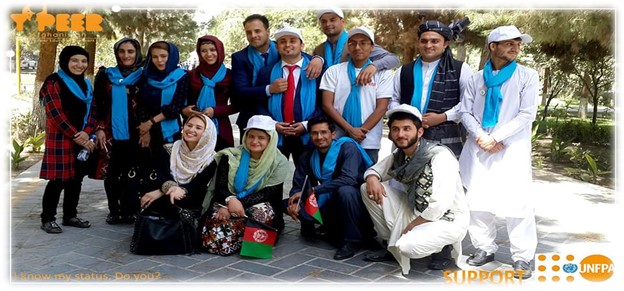
The Y-PEER program has worked since 2001 with country partners to build the capacity of national non-governmental organizations and governments to implement, supervise, monitor, and evaluate peer education programs to prevent HIV/AIDS and improve reproductive health. The Y-PEER initiative has been spearheaded by UNFPA in partnership with FHI/YouthNet, the United Nations Children’s Fund (UNICEF), and others. Y-PEER, launched in 27 countries in Eastern Europe and Central Asia, is now spreading to other regions of the world, including the Arab states, Africa, and Latin America. YouthNet is a five-year program funded by the U.S. Agency for International Development (USAID) to improve reproductive health and prevent HIV among young people. The YouthNet team is led by FHI and includes CARE USA and RTI International. This publication is funded in part through the USAID Cooperative Agreement with FHI for YouthNet, No. GPH-A-00-01-00013-00. The information contained in the publication does not necessarily reflect FHI or USAID policies. Since the inception of Y-PEER in 2001, UNFPA, Family Health International/ YouthNet, and United Nations partners (UNICEF, WHO, and UNESCO) have worked to build the capacity of local non-governmental organizations (NGOs) to design, implement, supervise, monitor, and evaluate peer education program in Eastern Europe and Central Asia. The program has focused on reinforcing the status and credibility of peer education. It has also promoted a comprehensive and multispectral response to reducing the vulnerability of young people to HIV/AIDS and sexually transmitted infections (STIs) and to empower them to become active partners in efforts to stem the pandemic.